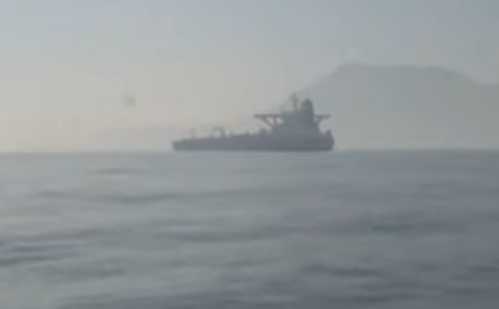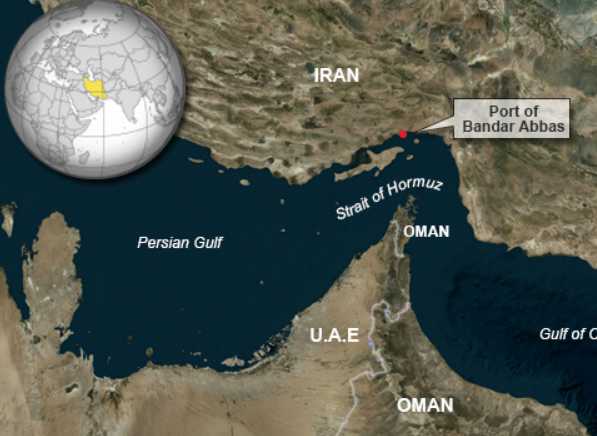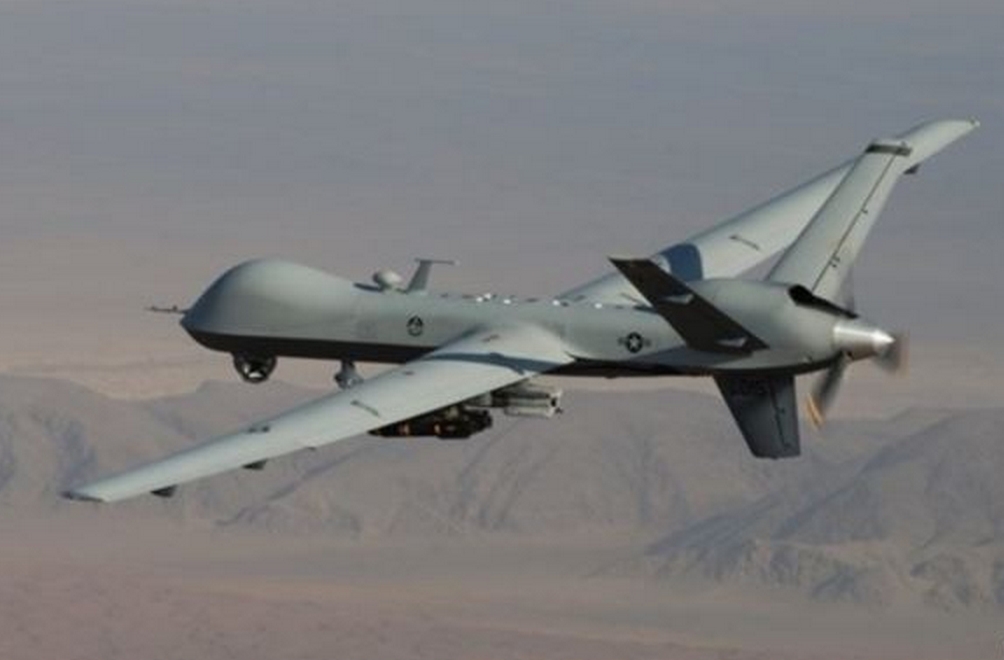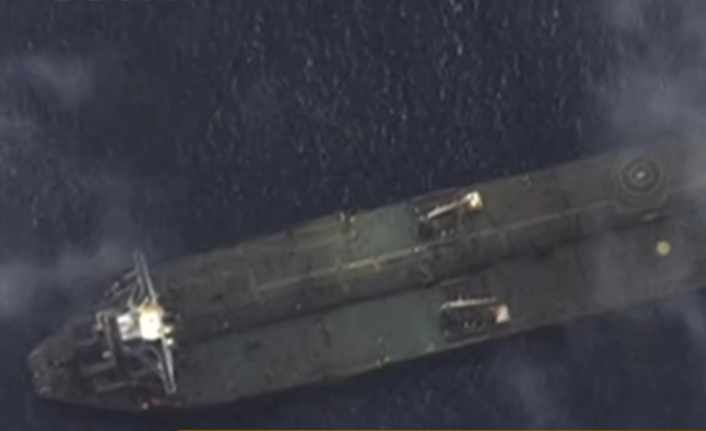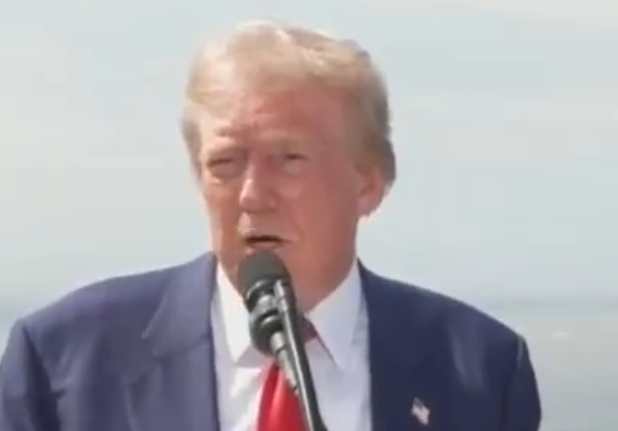
This image grab taken from a video provided by Iran’s Revolutionary Guard official website via SEPAH News, July 20, 2019, allegedly shows Revolutionary Guard Corps boarding the British-flagged tanker Stena Impero in the Strait of Hormuz.
WASHINGTON — The United States and Iran pushed full steam ahead, each country launching a new round of verbal volleys, as military tensions between Tehran and the West rose to new heights Monday.
U.S. President Donald Trump did his part to ramp up the rhetoric, telling reporters at the White House that Washington was ready for “the absolute worst” from Iran.
“They are really the number one state of terror in the world,” Trump said during a photo-op with Pakistani President Imran Khan in the Oval Office Monday.
Trump added Iran’s actions and lack of respect were making it more difficult for him to negotiate with Tehran.
“They shouldn’t have done that,” he said. “It could go either way.”
The U.S. president’s comments came hours after Iran did its part to further stoke tensions with the West, announcing it had captured 17 U.S. spies and sentenced some of them to death.
The announcement from Iran’s ministry of intelligence claimed the spies had been captured during the past year and had been collecting information from “sensitive sites,” like military and nuclear facilities, for the U.S. Central Intelligence Agency.
An Iranian counterintelligence official further said that despite having received sophisticated training from the United States, none of the alleged spies had been successful in efforts to sabotage the Iranian facilities. Television reports also showed photographs of alleged CIA officers who had been in touch with the spies.
Both Trump and U.S. Secretary of State Mike Pompeo rejected the Iranian claims.
“The Report of Iran capturing CIA spies is totally false,” Trump tweeted. “Zero truth. Just more lies and propaganda (like their shot down drone) put out by a Religious Regime that is Badly Failing and has no idea what to do.”
Earlier, Pompeo told Fox News, “The Iranian regime has a long history of lying.”
“I would take with a significant grain of salt any Iranian assertion about actions that they’ve taken,” Pompeo added.
[content id=”79272″]
This is not the first time Iranian intelligence officials have made such claims about the capture of American spies.
Back in April, Iran’s Mehr news agency quoted the intelligence minister as saying Tehran had uncovered a U.S. spy network which included hundreds of agents across several countries.
A U.S. official, speaking to VOA on condition of anonymity, disputed a similar set of Iranian claims in June.
The latest verbal sparring between the U.S. and Iran comes as Tehran has become increasingly aggressive in the Strait of Hormuz, a key shipping lane the passes by Iranian territorial waters.
On Friday, Iranian Revolutionary Guard commandos descending from helicopters, with several small boats in support, took control of a British-flagged oil tanker, the Stena Impero, transiting the strait.
On Monday, British Foreign Secretary Jeremy Hunt labeled Tehran’s actions an “act of state piracy” and said Britain was working to create a European-led naval mission to protect ships trying to navigate the strait.
The United States has proposed building and leading a similar naval coalition in recent weeks.
James Carafano, a national security analyst at the Washington-based Heritage Foundation, said it is very difficult to protect all merchant vessels during the six or seven hours it takes for them to transit the strait.
“It’s almost impossible for these ships to defend themselves, because they can’t see these small boats and helicopters coming until (those forces) are really on top of them, and there is almost no evasive action that they can take,” Carafano told VOA Persian in a Monday interview.
“The only way you can protect the ships is to prevent a bad thing from getting to the ships, so we do need more (naval) capacity to keep that (waterway) open,” Carafano said. “The more (nations) that participate (in a naval coalition), the more ships we can protect, and the more internationalized the effort is, the more it demonstrates an international commitment to freedom of navigation and the more it isolates Iran.”
Tensions between Iran and the West have risen steadily in the year since Trump withdrew the U.S. from the 2015 international accord aimed at restraining Tehran’s nuclear weapons program and reimposed economic sanctions against Iran to curb its international oil trade.
In addition to seizing the British oil tanker, Iran has also targeted U.S. assets in recent weeks.
In late June, Iran shot down a U.S. surveillance drone after alleging it violated Iranian airspace – a claim the U.S. denied.
Last week, the Pentagon said that forces aboard aboard the USS Boxer downed an Iranian drone after it “closed within a threatening range” while the ship was in international waters in the Strait of Hormuz.
While numerous U.S. officials have stated that Washington does not want war with Iran, U.S. military officials have warned the risk for a miscalculation has been increasing.
On Sunday, Iranian Foreign Minister Javad Zarif put the blame on Trump.
“Having failed to lure @realDonaldTrump into War of the Century, and fearing collapse of his #B_Team, @AmbJohnBolton is turning his venom against the UK in hopes of dragging it into a quagmire,” Zarif said Sunday on Twitter.
Zarif also repeated claims that U.S. policy towards Tehran is “economic terrorism.
VOA Persian’s Katherine Ahn and White House Correspondent Steve Herman contributed to this report.
Source: VOA


